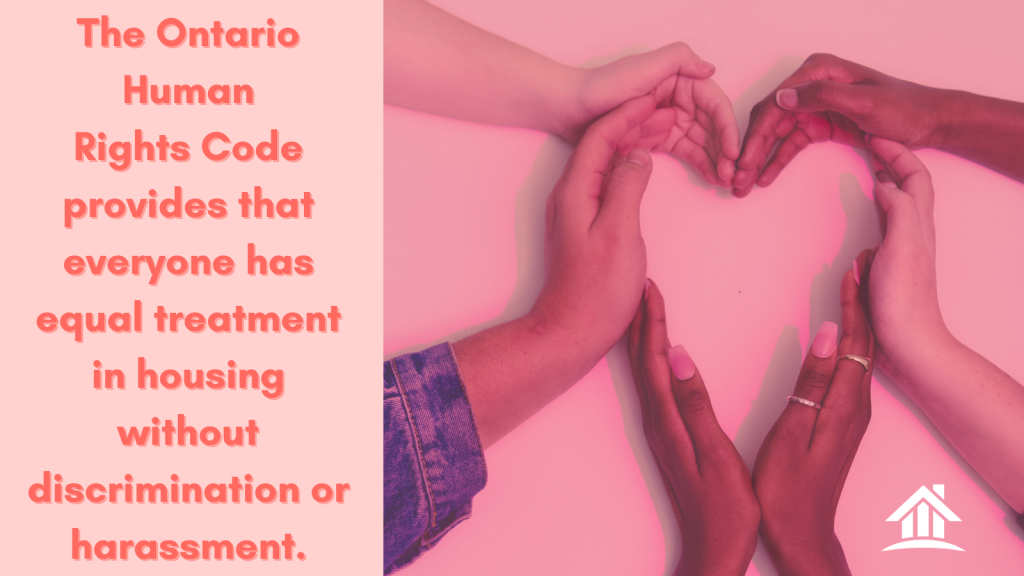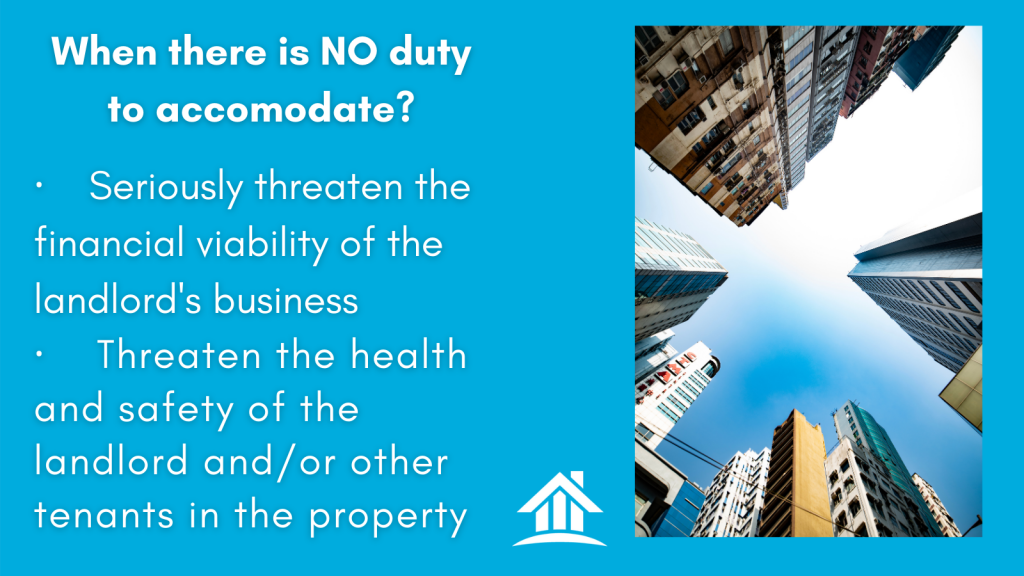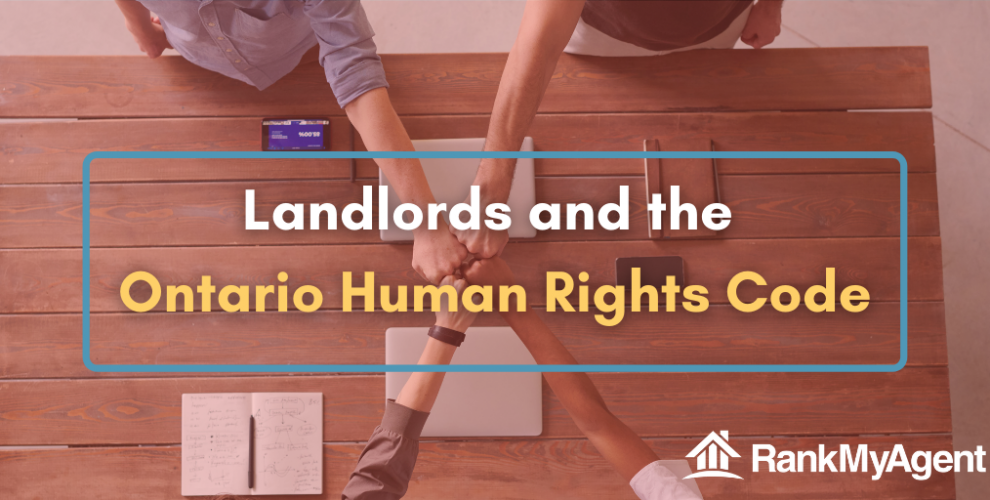Managing a property and being a landlord comes with no shortage of responsibilities. If you’re a landlord or a property manager, one of the most important sets of laws is the human rights code. And, as a tenant, human rights codes protect you from unfairness in the rental process
Each province has its rendition of a human rights code, and each code follows similar values. Generally, Canada’s human rights codes provide Canadians with equal treatment to housing, which is free from discrimination. Not following these laws can result in trouble with a local landlord-tenant board or human rights tribunal.
In this article, we look specifically at the Ontario Human Rights Code and what landlords are obliged to do under it. These laws are similar to other provinces, so this article remains an excellent primer for those outside of Ontario. We explain what a landlord can and cannot do when looking for or evicting a tenant, what a duty to accommodate means, and a landlord’s responsibilities to keep their property free from discrimination and harassment.
Finding or Evicting a Tenant

This means that landlords cannot refuse to rent to someone or evict a tenant due to the following grounds:
- race, colour or ethnic background
- religious beliefs or practices
- ancestry, including individuals of Aboriginal descent
- place of origin
- citizenship, including refugee status
- sex (including pregnancy and gender identity)
- family status
- marital status, including those with a same-sex partner
- disability
- sexual orientation
- age, including individuals who are 16 or 17 years old and no longer
- living with their parents
- receipt of public assistance
Additionally, a landlord can’t discriminate against a rental applicant or tenant for being a friend or family member of someone on the above grounds. That is, a landlord cannot refuse to rent to someone because their sister has a disability.
Many of these rules not only apply when selecting a tenant but also when a landlord advertises their property for rent. Advertisements cannot state the property is for “employed individuals only”. Phrases such as “young professional preferred” or “suitable for students” may also be controversial. These could discriminate against those living off of social assistance.
A landlord can refuse to rent to someone due to poor rental history, credit reference, or credit checks. But, commonly, a person cannot be prejudiced for lack of credit history as this may be seen as discrimination against someone new to Canada.
Income is another tricky area. A landlord can request potential tenants for their income. The landlord cannot expect to learn where the income is coming from, however. This prevents landlords from discriminating against individuals whose income comes from social assistance.
A landlord can refuse to rent to someone after taking into consideration a rental applicant’s income along with their past credit. It may not make sense to rent a luxury condo that costs $2,500 a month, to someone only making $35,000 a year and has had past issues with making debt repayments. However, it’s illegal for a landlord to state rent-to-income cut-off rules — that is, requiring that a tenant’s rent is at most 30% of their income is not allowed by the Ontario Human Rights Code.
The exception to the Ontario Human Rights Code is when the landlord and tenant share a bathroom and/or kitchen. The following types of rental homes are also not covered by the Ontario Human Rights Code:
- Senior Homes → Tenants must be of a certain age
- Single-Sex Residence → Tenants must be of a certain sex
Subsidized Housing → Tenants can be chosen due to their income
A Duty to Accommodate
A landlord has a duty to accommodate their tenants in that they must pay serious attention to their tenants’ requests or needs. Both the tenant and landlord must cooperate to make sure the needs of a tenant are addressed. A duty to accommodate could mean installing a ramp for a resident who uses a wheelchair. However, this doesn’t mean a landlord has to do anything and everything for the sake of their tenant. Landlords only need to accommodate to the point of “undue hardship”.

For example, if the landlord had to install an expensive elevator that would cause serious financial hardship, they may be exempt from the duty to accommodate. But in this case, the landlord still has a duty to provide the next-best solution.
Landlords must take accommodation requests seriously and respond promptly. Not doing so may be seen as not living up to the landlord’s duty to accommodate.
Preventing Harassment in the Property
The Ontario Human Rights Code ensures that landlords protect their tenants from harassment based on the grounds stated previously (such as gender, religion, race, marital status, etc…). This generally includes two responsibilities:
- First, a landlord or their agents cannot harass a tenant on these grounds.
- Second, if another resident harasses a tenant on those grounds, it’s the landlord’s responsibility to take reasonable steps to stop the harassment.
The Ontario Human Rights Code doesn’t allow negative behaviour towards a tenant by the landlord due to the tenant filing a human rights complaint. All Ontarians have the right to claim and enforce their human rights without fear of reprisal. A landlord looking to get revenge is a landlord looking to commit an illegal act.
Unfortunately for tenants, even if they do bring a complaint to the Human Rights Tribunal of Ontario, it’s not common for the Human Rights Tribunal of Ontario to find a case of discrimination. In 2018-2019, a report published by Tribunals Ontario showed that of 65 received decisions, only 19 complaints found evidence of discrimination.
Whether you’re a landlord or a tenant, it’s essential to understand your rights and/or obligations under the Ontario Human Rights Code. Understanding what a landlord can and cannot consider in a rental application can ensure you won’t receive a discrimination complaint or that you’re not unfairly rejected from a rental application. Duty to accommodate is also an important and tricky concept to understand. Understanding where “undue hardship” lies may even require legal help. Lastly, any home should be free from harassment. It’s both a landlord and a tenant’s job to do their best to keep it that way.
This article provides general information only. It may not be up to date and does not provide legal advice and should not be relied upon as legal advice. Please consult a legal professional to understand how the law applies to your specific situation.

